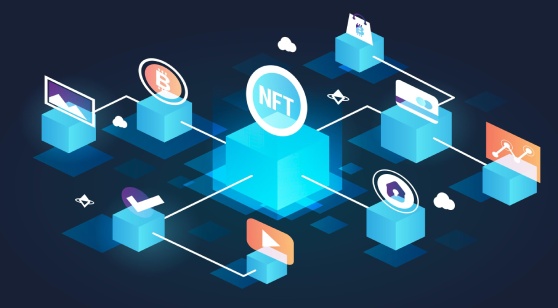Autonomous NFTs (non-fungible tokens) are a new development in the digital world. You can program them to perform transactions and benefit their owners. Autonomous NFT development company have various potentials that can transform the entire NFT industry.
What are Autonomous NFTs
Autonomous NFTs can perform functions without any external stimulus. Smart contracts power these digital assets to execute predefined actions. These NFTs unleash many possibilities in the digital world.
Autonomous NFTs use smart contract technology to execute contracts. Smart contracts automate the agreement terms between the involved parties. NFT owners can set certain conditions for their behavior. After establishing the conditions, the autonomous NFT will perform the commands autonomously without human intervention.
Check It Out |Rental NFT | A New Era of Non-Fungible Tokens
How do Autonomous NFTs Work
Autonomous NFTs operate with the help of smart contracts, self-executing programs that enforce conditions and rules. During autonomous NFT development, developers also deploy smart contracts on a blockchain network.
NFTs are given functions by smart contracts, such as ownership transfer, execution, or decision-making based on established criteria. You could, for instance, programme an autonomous NFT to depict a piece of art. The original artist may receive a share of the NFT's sales as a redistribution.
After smart contract deployment, an NFT can directly interact with it. The NFT can automatically execute actions coded in the smart contract.
Also, Visit |Types of NFTs (Non-Fungible Tokens) You Didn’t Know
Benefits of Autonomous NFTs
Automation
Smart contracts in autonomous NFTs enable them to perform certain processes automatically. It streamlines processes and minimizes the costs related to manual oversight and management.
Interoperability
Autonomous NFTs are compatible with various blockchain networks and decentralized applications (dApps). It facilitates seamless interoperability and transferability between multiple networks and platforms.
Security
Blockchain's cryptographic protocols provide autonomous NFTs security. They make it difficult for hackers or malicious actors to temper or hack ownership records. It protects the value of an NFT and secures its associated transactions.
Eliminates Intermediaries
Autonomous NFTs provide direct ownership transfer between involved parties. It eliminates the involvement of third parties, including platforms, brokers, or agents. These intermediaries add costs and complexities to the ownership transfer processes.
Use Cases of Autonomous NFTs
Use cases of autonomous NFTs can go beyond static representations and introduce dynamic, interactive, and autonomous functionality to the NFT ecosystem. Their potential applications are virtually limitless. They can open up new opportunities for creativity, personalization, and utility within the NFT space.
Collaterals
An autonomous NFT could act as collateral for loans or decentralized finance (DeFi) protocols by leveraging smart contract development. Developers can program it to return to its original owner once a specific condition, such as loan repayment, is met.
Arbitrage Trading
Programmers can design NFTs to autonomously monitor token prices across multiple decentralized exchanges (DEXs) and execute arbitrage trades when favorable opportunities arise. It could generate profits for the owner by taking advantage of price discrepancies.
Dynamic Wearable Autonomous NFTs
Wearable autonomous NFTs could possess the ability to change their appearance, color, or shape based on external factors (the price of Ethereum, the weather, or other real-time data). It could add an interactive and adaptive element to the NFT, allowing it to reflect or respond to its environment.
Non-playable Characters (NPCs) in a Metaverse
The metaverse's next level of possibilities is being made possible by autonomous NFTs. These distinctive tokens can assume the role of non-player characters (NPCs), providing the players with interactive missions, knowledge, and dynamic stories.
Self-executing Real Estate Contracts
Autonomous NFTs can create self-executing real estate contracts to guarantee that all parties receive automatic payments based on predefined conditions. This implementation streamlines the buying and selling process, reducing the dependence on intermediaries and enhancing transaction efficiency.
The Future of Autonomous NFTs
Autonomous NFTs are at their early stage of development, and their future seems promising. Their integration with other technologies like AR (augmented reality), VR (virtual reality), and the (Internet of Things) can create numerous possibilities in the NFT world. It can enhance user experience and increase the use cases of these NFTs.
From developing smart contracts to designing NFT artworks, we offer custom-made services for autonomous NFT development that meet your requirements. If you are interested in developing autonomous NFTs, then contact our NFT developers.
Hire blockchain development company, to design the software for your NFT development, which will facilitate NFT transactions and offer a transparent, secure Web3 environment.
#nftdevelopment #nftdevelopmentcompany #nftblockchaindevelopment





Comments